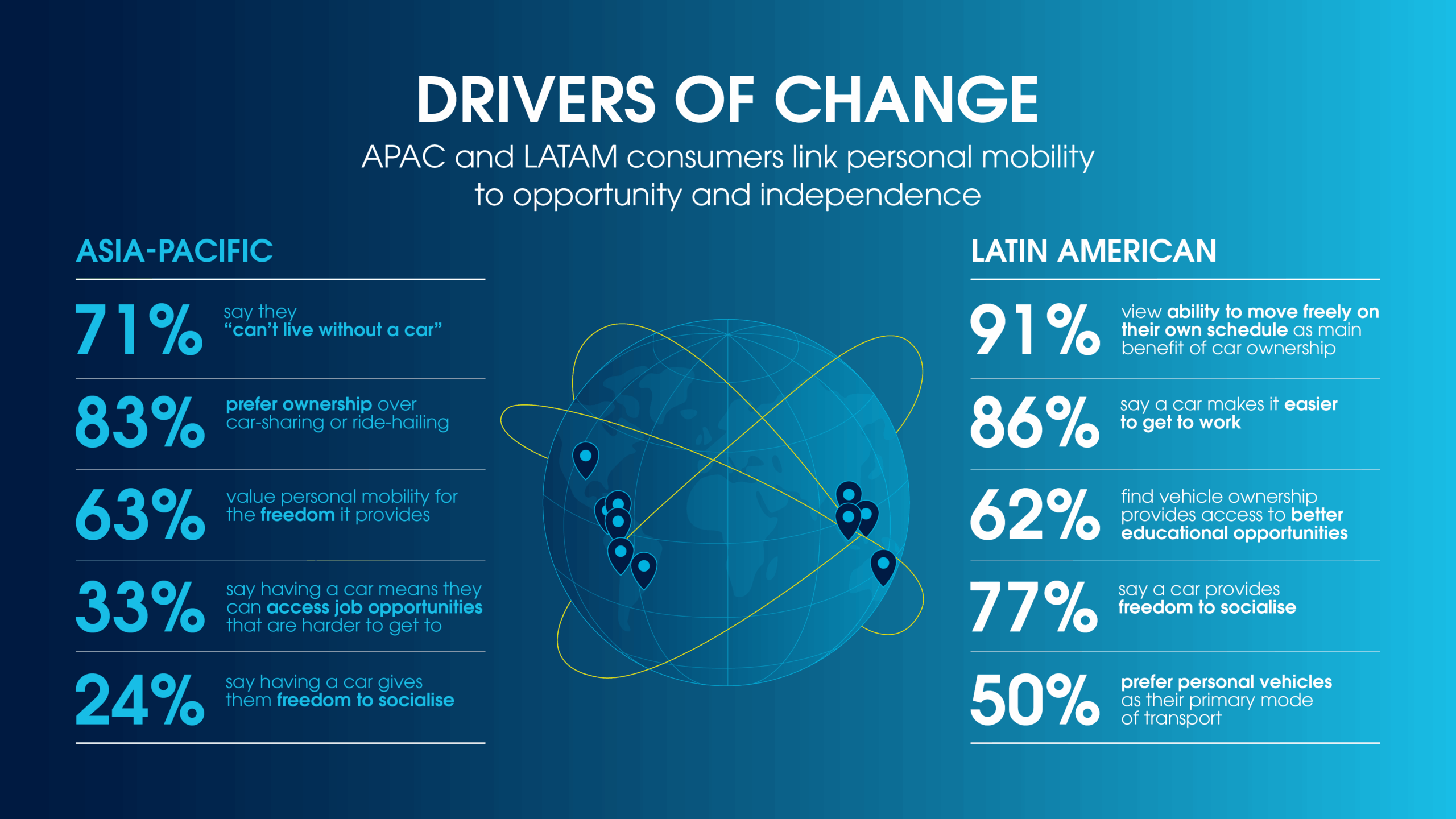Opportunity in motion: The role of automotive in driving social mobility

In this exclusive guest article for Just Auto, Duncan Tait reflects on our Drivers of Change report, sharing findings from a survey of Asia-Pacific and Latin American consumer attitudes to motorisation and the role vehicles play in driving social mobility. You can read the full article below or visit Just Auto. For more information, visit our Drivers of Change hub.
For many of us, it’s a long time since we passed our driving test. But cast your mind back to that moment when the L-plates came off and you felt the freedom of mobility!
In emerging markets, where distances are longer and public transport is less accessible, you can imagine that this feeling is more pronounced. As I visit markets like Chile, the Philippines and the Caribbean, I see firsthand the vital role that vehicles play in enhancing quality of life and powering local economic development.

Car ownership is far more than a utility – it is a vehicle for wellbeing, social advancement and personal identity. It remains embedded in how individuals define a good quality of life and navigate the demands of modern society.
Duncan Tait Group Chief Executive
Our new Drivers of Change survey asked 6,000 consumers across 13 countries in Asia Pacific (APAC) and Latin America to share their views about car ownership and the sentiment of consumers towards the new energy vehicle transition.
Our findings confirm our view that access to personal mobility or transport remains fundamental to economic development and social inclusion. For many people in these countries, having a car means they’re able to travel to their job, attend healthcare appointments and pursue education.
Unlocking opportunities through car ownership
In Asia Pacific, 63% of respondents cite ‘freedom of movement’ as a major benefit of car ownership. In Latin America, the evidence is even more prominent with 91% of respondents valuing the ability to travel according to their own schedule. Taking into consideration the distances people often must cover and the public transport are developing in many of the countries we surveyed, it is easy to understand why a personal vehicle plays such an essential role in social mobility.
In addition to freedom of movement, consumers in APAC point to easier commuting (49%) and enhanced lifestyle and wellbeing for themselves and their families (39%) as major benefits of owning a car. Additional advantages include access to job opportunities, and improved access to education.
Latin American respondents believe that a vehicle enables a better lifestyle for themselves and their families (86%), facilitates commuting to and from work (86%), and improves access to employment (81%).

Car ownership increases the opportunity for a better life
These insights support our view that vehicles enhance personal development, economic participation and social inclusion. For certain groups, such as the elderly or people with disabilities, having access to a personal car can mean the difference between isolation, access to healthcare and active engagement with the community and wider society.
At a time when personal car ownership is increasingly important, the industry needs to come together to solve the challenge of decreasing greenhouse gas emissions by working to support the transition to EVs – there is no one-size-fits-all approach and the transition must be equitable and enduring.
In listening to and understanding what drives consumers in individual countries, we can further understand how best to provide mobility solutions that support personal development, economic participation, and social inclusion.